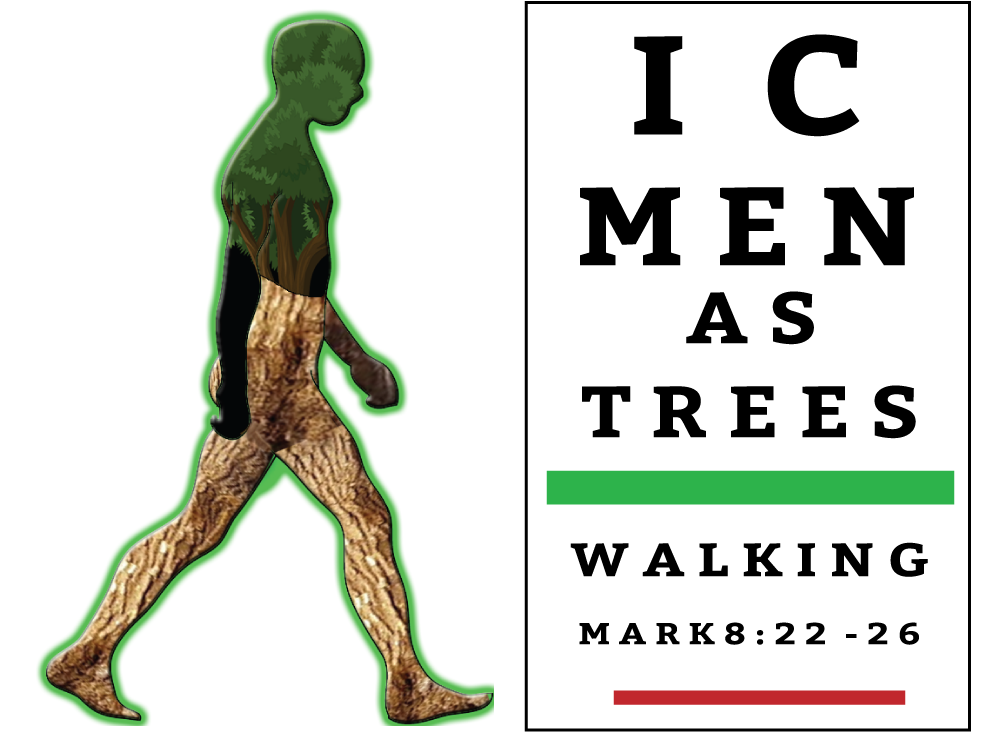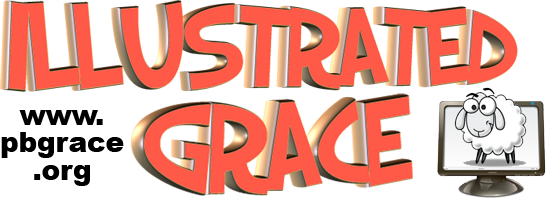
In the eighth chapter of the book of Mark, a short narrative seems to have been inserted as an afterthought. We know that’s not really the case, but five verses of scripture are not joined with anything that precedes or follows them. The subject, city and setting before these verses are different, and the theme and location of the verses following don’t seem to match. The odd placement causes us to draw closer to the account in study. Even a casual reading of Mark 8 will show how these verses stand out.
Preachers tell us in the rules of scripture study, we must always be careful with context. We must know the setting and the subject. We must know who is speaking and to whom the comments are directed. As the saying goes, the entire Bible is not written to you, but it is written for you.
Our setting is Bethsaida. Historians believe this was where the 5000 were fed. Phillip, Andrew and Peter were from ‘the house of the fisherman.” Off these shores Christ walked on water, yet He pronounces: Woe unto thee, Chorazin! woe unto thee, Bethsaida! for if the mighty works, which were done in you, had been done in Tyre and Sidon, they would have repented long ago in sackcloth and ashes. (Mat 11:21)
Let’s look at these five verses in Mark.
Mar 8:22 And he cometh to Bethsaida; and they bring a blind man unto him, and besought him to touch him.
:23 And he took the blind man by the hand, and led him out of the town; and when he had spit on his eyes, and put his hands upon him, he asked him if he saw ought.
:24 And he looked up, and said, I see men as trees, walking.
:25 After that he put [his] hands again upon his eyes, and made him look up: and he was restored, and saw every man clearly.
:26 And he sent him away to his house, saying, Neither go into the town, nor tell [it] to any in the town.
Jesus was no stranger to giving sight to the blind. There is a much detailed scenario in the 9th chapter of John, where the disciples ask whether it was the blind man or his parents’ sin that caused the condition.
The situation in Mark is different in many ways. One is privacy. The unnamed benefactor of Christ’s mercy is told not to tell of his sight recovery to any in the town. In John, the blind man is brought immediately to the Pharisees to be questioned.
The second and most notable distinction is the man detailed in John was born blind. Our subject in Mark 8:22 is one who had previous sight and lost it. This may well be the key to our understanding of the scripture.
Common sense tells us that even a person born blind would be able to recognize men when first receiving his sight. But a tree one could only know by touch. Further, to visualize a stationary item walking would require both previous memory and some imagination. Can you see that? If a person at his first ever sight viewed a tree at a distance standing, he might be able to say – yes, I believe that’s probably what I’ve touched before and been told was a tree. But to see men as trees, walking – that description tells us he had been an earlier owner of vision.
Men have developed many rules and tests they apply to the interpretation of scriptures. I recently heard an able man proclaim it’s important to determine what “we should first know.” That’s good advice. Others say we should examine every Old Testament setting closely to find Christ or the church.
I have two tests I like to apply to consideration of scripture. One is the inescapable conclusion. When I have reached a barricade or end in study that tells me a word, phrase, verse, etc. can mean nothing else, I work backward, testing that against the scriptures.
The pen behind the Sherlock Holmes novels describes it thusly:
"When you have eliminated the impossible, that which remains, however improbable, must be the truth." ~ Sir Arthur Conan Doyle (1859-1930)
The second – and best test for an application of scripture – in my mind is this: When you have arrived at your conclusion, Does it honor God or man? If it honors man, there is no doubt the application is incorrect. Now, granted, it is possible that your perception of a scripture can honor God and still be the wrong application, yet in such a case, it probably does the scripture no harm.
Mark 8:23 And he took the blind man by the hand, and led him out of the town; and when he had spit on his eyes, and put his hands upon him, he asked him if he saw ought.
No public display this time. Commentaries tell us Jesus had found many doubters in this town before. Was this just another tiresome test by the Jewish rulers to catch Him performing a miracle on the Sabbath, or an attempt to make Jesus say without equivocation He was the Messiah – that they might condemn him?
Out of town. But not far. The town was certainly small, and Jesus and the blind man did not go completely out of the sight of all men. After all, the blind man would soon be able to see men. And the witness who would relate the details to the gospel writer would be fairly close-by.
Why did Jesus take the man out of town? As I prayed and studied and read and re-read, I believe the Lord opened my eyes to some of the symbolism.
How sweet to be led out of a terrible condition leaning on the arm of Jesus! While we were all spiritually blind at one time, we had to be led to where we could see things a little clearer, and our state dictated that none but the Lord could escort us out.
But even more, here’s the end of the law. Our schoolmaster has brought us to Christ. Jesus takes one who had previously seen and leads them from their blindness, away from the town without repentance, from law into grace. (Consider the Jews, who had the oracles of God, the Ten Commandments, and the law. The Jews, who, over time perverted all that God had given them until they were themselves the blind leading the blind.)
:24 And he looked up, and said, I see men as trees, walking.
That describes the Jewish people of the day. Men, walking about, seeking righteousness but not finding it. They had no root! Trees without root cannot take on water and have no life. They have no nourishment, and they cannot bear fruit. They had forsaken the good ground in which their heavenly Father had planted them.
Rom 10:3 For they being ignorant of God's righteousness, and going about to establish their own righteousness, have not submitted themselves unto the righteousness of God.
Mat 3:9 And think not to say within yourselves, We have Abraham to [our] father: for I say unto you, that God is able of these stones to raise up children unto Abraham.
:10 And now also the axe is laid unto the root of the trees: therefore every tree which bringeth not forth good fruit is hewn down, and cast into the fire.
Only a tree that has been cut down or up-rooted can be away from its earthly moorings.
Mark 8 :25 After that he put [his] hands again upon his eyes, and made him look up: and he was restored, and saw every man clearly.
He was restored. I submit the word restored as final proof the man once had sight. And made him look up. For so long the Jews had looked unto themselves or to the law for salvation.
Look up. Before we are aware of our new birth, sometime after the Spirit of God has made us a new creature, we discover in ourselves a condemnation. We dare not even look unto a Just and Holy God. The knowledge and weight of our sin holds us down to the very earth, where we are mere worms in His sight. But when the grace of God has touched our heart and soul and we are made to look up, the weighty chains of sin’s bondage is cast off our neck and we can thereafter look up and continue to do so. At some point, every one of God’s children will look up to the Father.
And saw every man clearly. When you can see every man clearly, you can see yourself as well. You can see your condition of total depravity, your sinful nature, your need of a redeemer. You can see the law clearly as well. For the nation of Israel, the law was often cloudy and unclear. We have the benefit of looking back and seeing the intent and purpose of God in the law. Those closest to it, if you’ll pardon the expression, couldn’t always see the forest for the trees.
8:26 And he sent him away to his house, saying, Neither go into the town, nor tell [it] to any in the town.
You can’t go back the way you came. The old law service holds nothing for you now. It has served its purpose and has been fulfilled in Christ. Neither go into the town, nor tell it to any in the town. Will they be persuaded by recovery of sight to a blind man? Neither will they be persuaded, though one rose from the dead. And for us today, the same advice. Psa 40:2 He brought me up also out of an horrible pit, out of the miry clay, and set my feet upon a rock, [and] established my goings.
I’ll leave you with one final thought before you research the five verses for yourself – and even if you don’t care for the analysis, it falls safely within our established standards.
I am not a master of English, but in this final verse, I know the pronoun ‘he’ is referring to Christ. While I may be wrong grammatically, it does no harm to the scripture to suggest “his house” is also referring to the Church. And he sent him away to his house. That fits.
|
|

